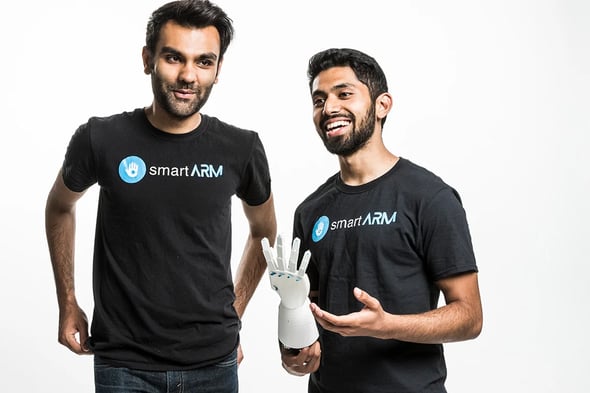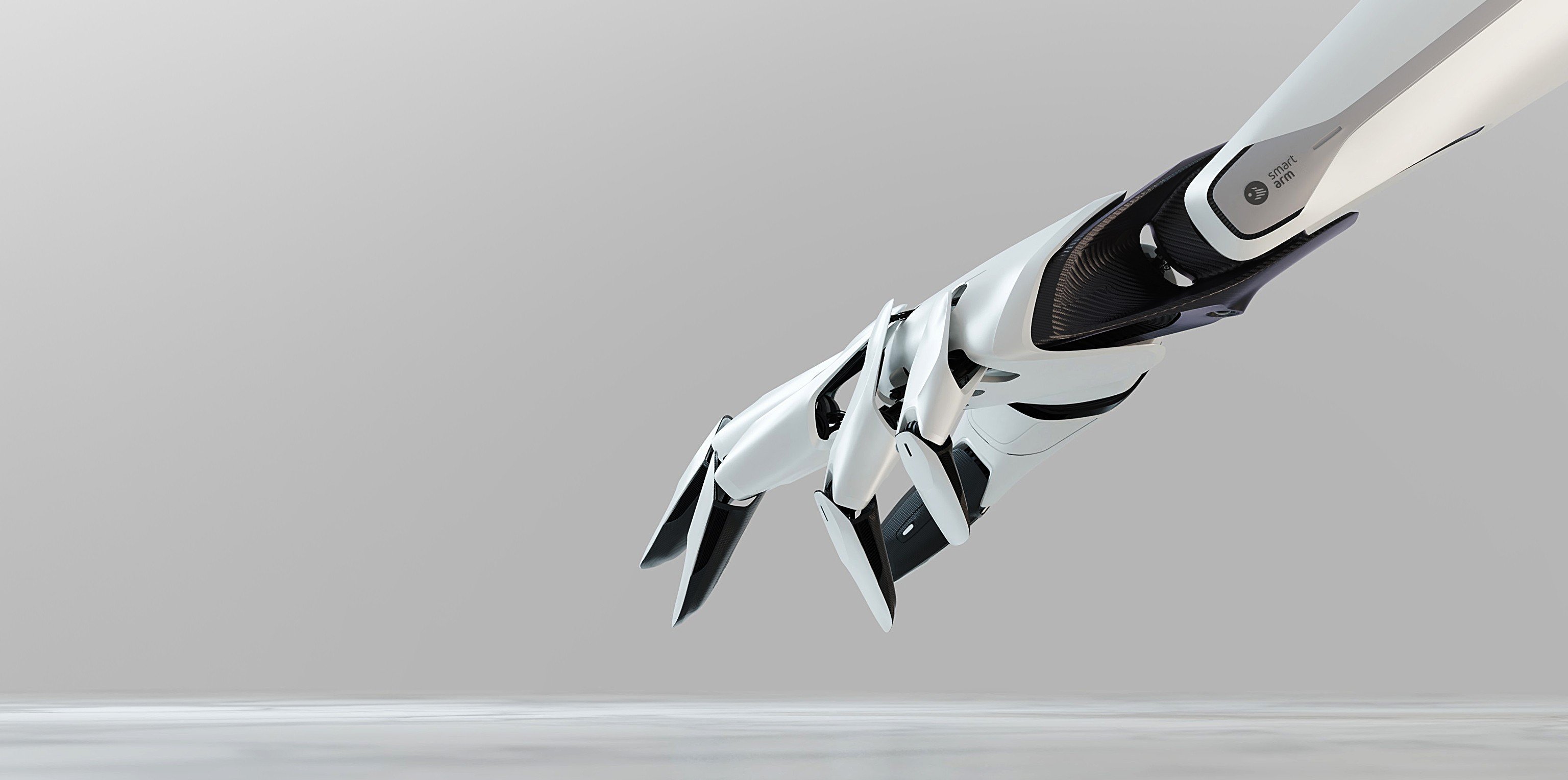Artificial intelligence (AI) has recently been integrated into medical fields and has revolutionized various aspects of healthcare, especially prosthetics. Research and interest in integrating AI in medical devices are not new, given the numerous developments in this field.
Speaking of developments, the recently introduced AI-powered arm is one notable example of the ground-breaking technology resulting from the fusion of AI and prosthetics.
A Promising Innovation
A Toronto-based startup, smartARM has created a smart prosthetic arm that changes amputees' accessibility by utilizing artificial intelligence. If it gets regulatory approval, and the project is successful, it will be a game changer in the prosthetics world.
At approximately $8,000, it is quite affordable compared to the traditionally expensive prosthetics, with prices typically soaring over $100,000. It is made through 3D printing to fit the exact dimensions of the user and is also scalable for children.
With an estimated 40 million amputees across the globe, many of whom lack access to essential prosthetics, this low-cost, high-tech solution has the potential to transform millions of lives.
How AI Can Fill the Gaps in Prosthetics
AI in medical devices has the potential to revolutionize healthcare by improving diagnosis, treatment, and patient outcomes. One of the most remarkable features of this AI-powered arm is its adaptability through personalized training. Let’s discuss how it can be a better alternative to traditional prosthetics.
Enhanced Functionality
The integration of AI and prosthetics has the potential to provide unprecedented levels of functionality. AI-powered prosthetics can use advanced sensors, cameras, and machine learning algorithms to mimic human arm and hand movements accurately. Users can perform complex tasks that were previously challenging, such as picking up small objects, with greater ease.
Personalized Learning
AI-powered prosthetics have the ability to learn from the user. The AI algorithms can adjust and optimize the prosthetic's responses through interaction and everyday use, making it more intuitive. This personalized learning process ensures that the prosthetic aligns more with the user's natural movements and preferences, significantly enhancing usability.
Affordability
Traditionally, advanced prosthetic limbs have been prohibitively expensive, often costing tens of thousands of dollars. AI-powered prosthetics, however, could be an affordable option, sometimes costing significantly less than traditional models. When it comes to AI and prosthetics, this price difference opens access to advanced prosthetic technology for a broader population segment.
Customization
3D printing technology allows for unprecedented customization in creating these AI prosthetics. Scans of the user's body ensure that each prosthetic arm is tailored to fit perfectly, enhancing comfort and functionality. The technology also promises scalability, particularly beneficial for children who would otherwise outgrow their prosthetics rapidly.
Conclusion
The advent of AI-powered prosthetics is a transformative shift, especially when one considers the intersection of AI and prosthetics. AI-powered prosthetics have the potential to greatly enhance amputees' quality of life worldwide. After all, AI-enabled prosthetics are not just offering an alternative to traditional devices but are setting a new standard for what prosthetics can achieve.
The use of AI in the medical field brings hope to millions of people. These advancements promise not just improved physical mobility and independence, but also a greater sense of empowerment for those who have long been marginalized by the limitations of existing technology.
Photo courtesy of Microsoft Imagine Cup.



